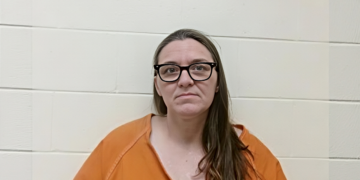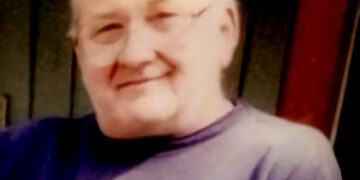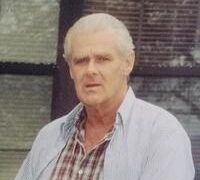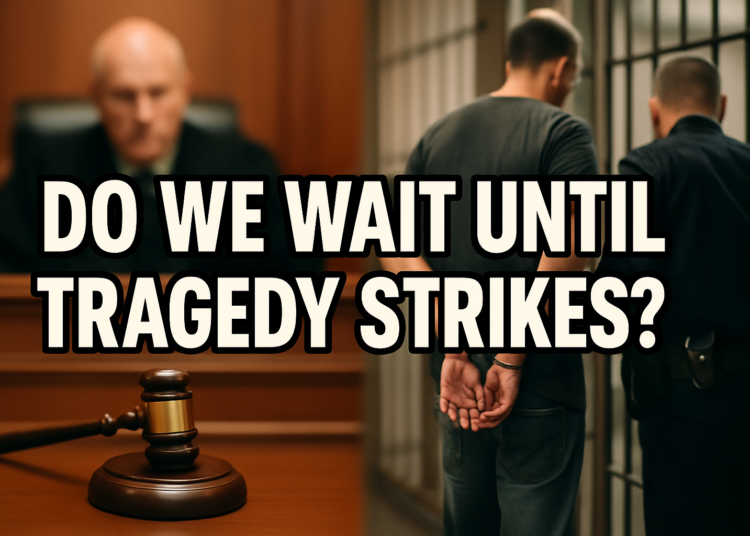Tennessee Judge Clay Collins recently shared the heartbreaking story of 27-year-old Chase Scoggins, a mentally ill young man who died alone in the woods behind a Target. Chase had been in and out of jail dozens of times, mostly for low-level offenses like trespassing, disorderly conduct, or stealing food. He wasn’t dangerous in the criminal sense — he was sick. But in today’s system, the only place the courts could put him was jail. And when jail inevitably failed, he was put right back on the streets.
His end — dying unclaimed, unnoticed, in the woods — was predictable, even inevitable. The judge admitted that as a criminal court, he wasn’t equipped to be his county’s de facto mental health system. But that’s exactly what’s happening all across America, including right here in Portsmouth.
🔁 The Same Story, Different Town
If Chase’s story sounds familiar, it’s because we’ve been reporting the same cycle in Portsmouth:
- The troubled homeless woman who’s been arrested twice in one day for disorderly conduct, only to be immediately released and back on the streets within hours.
- The man defecating on the stage in Tracy Park, who’d already been arrested earlier this year, but was turned loose again with hopes he’d make his next court date.
- Samantha Estep, who was arrested twice in the same weekend — once at the post office, once running through a local business — and was sentenced to a $10 court cost before being released.
- The revolving door of arrests at Kroger and Tracy Park, where the same names show up day after day, week after week, until the next breakdown or confrontation.
Just like in Tennessee, our police officers and judges are forced to act as front-line mental health providers, a role they were never trained for and do not have resources to fulfill.
🚨 The Revolving Door Problem
As the judge in Tennessee pointed out: jail time doesn’t fix mental illness. Whether someone spends 10 days or 10 months locked up, if they are released untreated, they will inevitably reoffend.
In Portsmouth, we’ve seen this:
- Courts hand down the “least restrictive sentence” — probation, fines, or time served.
- Jails release people within hours, sometimes before the ink on the report dries.
- Local mental health facilities lack beds or turn people away.
- Shelters and rehab centers often refuse individuals with repeated disruptive behavior.
The result? The streets of Portsmouth have become an open-air holding cell for the mentally ill.
🧩 What the Judge Is Calling For
The Tennessee judge made a blunt point:
- When America shuttered its asylums in the 1970s and ’80s, jails became the replacement.
- Now, thousands of people like Chase are stuck in a loop of arrest, release, repeat — until they die, often young, often alone.
- The judge argued it’s time to bring back institutional care — humane, properly funded, and designed to help people live their best possible lives instead of leaving them to spiral in public.
⚖️ What This Means for Portsmouth
Locally, this story hits too close to home:
- Nine large homeless camps now exist within city limits.
- Police logs show daily calls about people passed out, screaming, or trespassing in abandoned homes.
- A homeless task force was promised months ago, but little progress has been seen.
- Residents are growing frustrated and afraid, while businesses deal with constant disruptions.
And just like in Tennessee, the only time serious mental health care kicks in is after a violent crime. Until then, people like Chase Scoggins— or the troubled individuals we write about here daily — are left to die slowly in public view.
💬 The Local Question
The judge’s words could have been written about Portsmouth:
- How many more people will die alone in the woods, in abandoned houses, or on sidewalks before the system changes?
- Do we wait until tragedy strikes — a violent assault, a preventable death — before acting?
- Or can Portsmouth lead the way in demanding the kind of humane, long-term care that could have saved Chase Scoggins life — and could save the lives of those still wandering our streets today?























































































